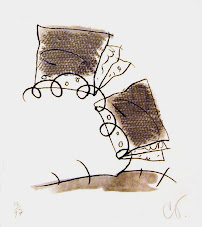In response to the 'rigour' map below, and recent criticisms of academia, I feel there are some important elements that could be added to the map below (regarding the 'rigour' debate). The 'rigour' discussed and represented in the map seems to relate purely to academia, how our work is viewed by our peers, a limited and somewhat elite audience. Academia is currently being attacked for its distance from the world outside (the direct issues and problems encountered 'out there'), the relevance of it's (our) research and it's (our) outputs. In a department with an emphasis on critical geography this is surely something we should be addressing...if of course our research is to mean anything beyond academic brownie points (or becoming another business class activist).
Ethnographic and autoethnographic practice involves participant observation so it seems strange, and rather telling, that responsibility to participants, and indeed the issues being addressed through research, remained invisible and forgotten in our rigour map/discussion. Ironic, as this invisibility is something that recent ethnography and autoethnography has sought to confront, challenging (rather than perpetuating) the privileged role of researcher. As has been discussed in previous meetings, many of us feel that a responsibility to the issues we are in some small way attempting to address and to the people who are participating in the research (as research subjects and/or collaborators) should perhaps the be first site of any test of rigour; if research outputs remain hidden and/or meaningless to those we claim to speak with - either through the choice of outlet (subscription journals etc) or through impenetrable, jargon encrusted papers - how can there be any claim to rigour. Within critical geographic praxis creativity would seem to have an important role in producing work that is rigorous, exciting, and relevant to audiences far beyond the walls of academia.
Well, I guess what I am saying is perhaps we could make some space for 'responsibility' in our search for rigour. Rather than scrambling to regurgitate the latest 'right kind of theory' start thinking through our work.
But hey, I'm just a 'mindless ethnographer', apparently, so what would I know...moan,moan,moan...

1 comment:
Kerry,
Some heartfelt concerns there, reading between the lines!
I had a second look at the map with a friend, trying to explore some of the 'easier' words, such as 'depth'. Depth for us meant both a reductive element (extracting information from 'data') and 'expansionist' (adding meaning and feeling via our particular prejudices, role of imagination, linking to personal pol/soc/ethical etc. concerns).
Further, 'following the ideas through' to consider their applicability outside of the immediate academic arena was also raised. By this I don't mean having a 'goal' prior to the work, necessarily, but applying the work outside the theoretical 'domain' as part of the project. I suppose this could be called responsibility?
Lastly, the notion of 'finesse' popped up - the idea of a careful craftsmanship of the work, and the 'polishing' process, which renders it readable/accessible to a particular audience (This follows the debates we had about art and media, and also the debates about appropriate audiences - political in the least.)I guess a sense of 'labour of love' is meant here. Given poststructuralist notions of the 'post-author' (or beyond authority), perhaps this last category could be a little provacative and raise debate: if we (who?!) are no longer 'authors' of our own work (troubled subjectivities) where does responsibility lie for our phd's? [Apologies for crudeness of summary of a very interesting debate, here.] With the reader, as Barthes sometimes suggests? (Playing a trickster here!)This is especially relevant to me given my study of collective storytelling.
Post a Comment